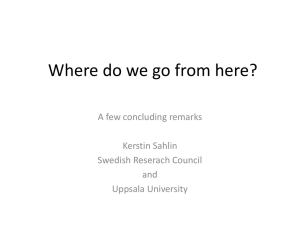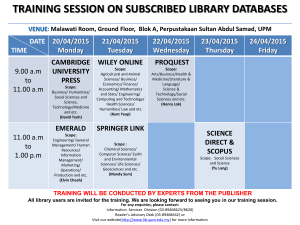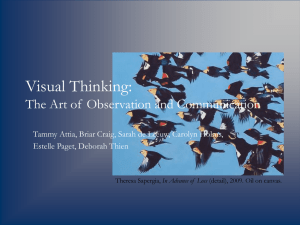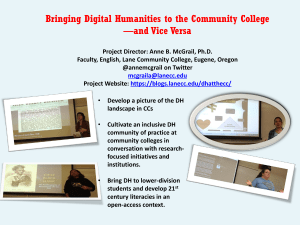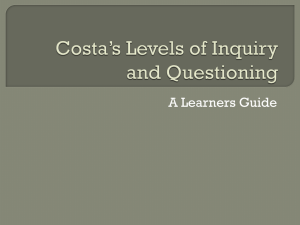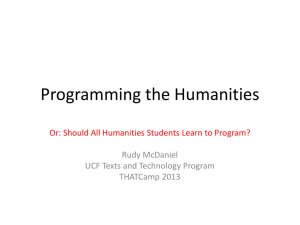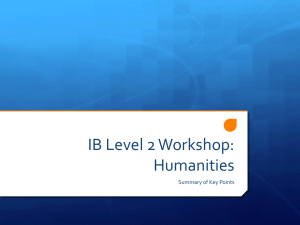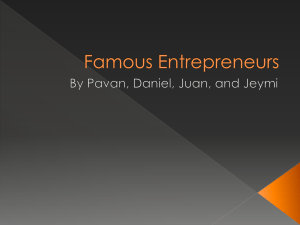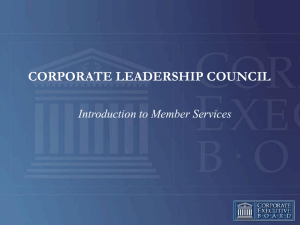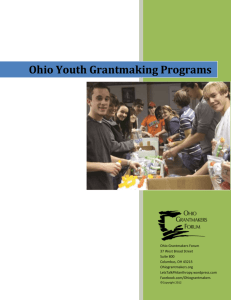A Brief and Biased History of Digital Humanities
advertisement
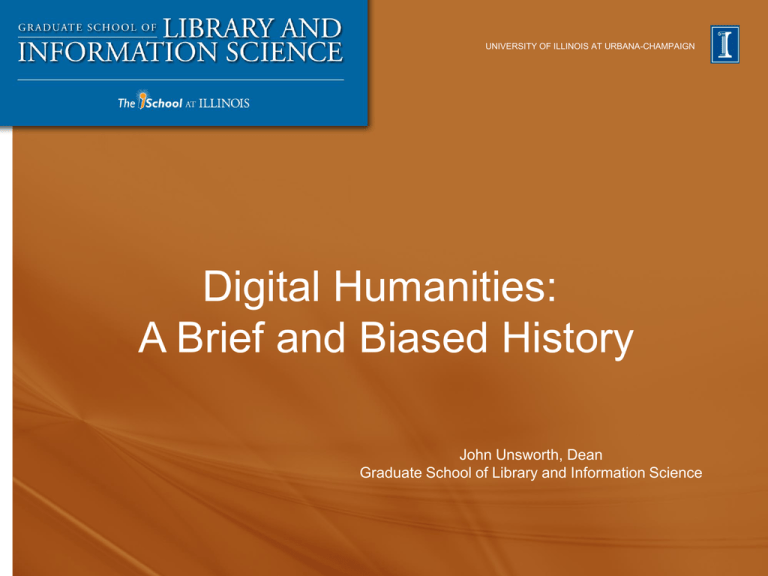
UNIVERSITY OF ILLINOIS AT URBANA-CHAMPAIGN Digital Humanities: A Brief and Biased History John Unsworth, Dean Graduate School of Library and Information Science 1949-1970 • 1949: Father Roberto Busa began his index of every word in the works of St. Thomas Aquinas (11M words); visits Thomas Watson and enlists IBM • 1963: Roy Wisbey founded the Centre for Literary and Linguistic Computing in Cambridge to support his work with Early Middle High German Texts. • 1966: Computers and the Humanities founded • 1970: The first instance of what later became the Association for Literary and Linguistic Computing/Association for Computers and the Humanities (ALLC/ACH) joint annual conference held at the University of Cambridge 2 From Fr. Busa’s Foreword to the Blackwell Companion to Digital Humanities: I began, in 1949, with only electro-countable machines with punched cards. My goal was to have a file of 13 million of these cards, one for each word, with a context of 12 lines stamped on the back. The file would have been 90 meters long, 1.20 m in height, 1 m in depth, and would have weighed 500 tonnes. In His mercy, around 1955, God led men to invent magnetic tapes. The first were the steel ones by Remington, closely followed by the plastic ones of IBM. Until 1980, I was working on 1,800 tapes, each one 2,400 feet long, and their combined length was 1,500 km, the distance from Paris to Lisbon, or from Milan to Palermo. 3 1973-1992 • 1973: Founding of The Association for Literary and Linguistic Computing • 1978: Founding of the Association for Computers and The Humanities • 1985: Perseus Project begun at Harvard • 1986: Literary and Linguistic Computing founded • 1986: SGML specification released • 1987: Text-Encoding Initiative, Humanist begun • 1991: Electronic Beowulf Project • 1992: H-Net founded 4 1993-2004 • 1993: Mosaic released, IATH founded at Virginia, STG founded at Brown • 1994: First edition of the TEI guidelines; Center for History and New Media founded • 1996: First draft of XML spec released • 1999: MITH founded • 2001: TEI incorporated as a non-profit • 2003: HASTAC founded • 2004: Blackwell Companion to Digital Humanities 5 2005-2011 • 2005: The Blake Archive approved by MLA’s CSE • 2006: Electronic Textual Editing • 2006: ACLS report on Cyberinfrastructure for Humanities and Social Sciences • 2006: NEH Office of Digital Humanities • 2007: NEH DH Start-up grants • 2007: Centernet founded • 2008: CLIR Survey of Digital Humanities Centers • DH 2010 conference, King’s College, London • DH 2011, Stanford University 6 Example Projects from the last 20 years • • • • • • • • • • 1990: Postmodern Culture 1993: The Valley of the Shadow 1995: The Blake Archive 1996: Romantic Circles 1997: The Walt Whitman Archive 1999: Supporting Digital Scholarship 2000: Salem Witch Trials 2002: NINES 2005: The NORA Project 2008: MONK Project 7
